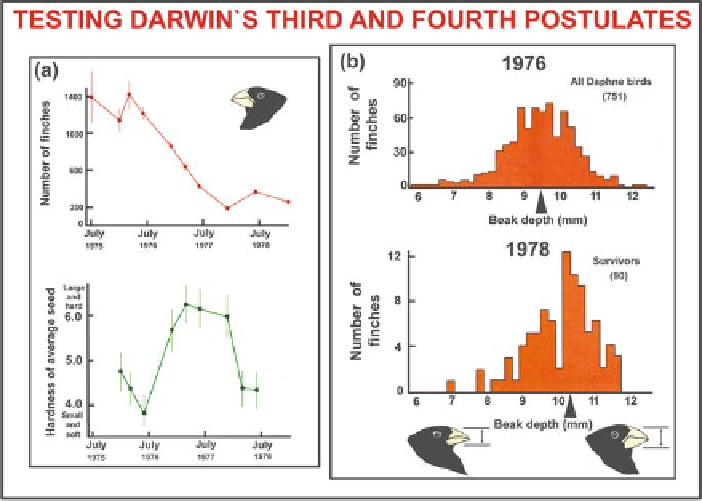Biology Reference
In-Depth Information
less deep beaks, as shown in Fig. 3.9b, where the arrows on the horizontal axes indi-
cate the average values for beak depth. The birds with deeper beaks also tend to be
bigger in body size, so tend to win fights with smaller birds over the supply of seeds.
Comparison of beak depth between finches hatched before the drought with those
hatched after the drought revealed that the average beak size was increased after the
drought. Thus changes in the environment cause changes in the genetic composition
of the population. These observations in the field confirm the prediction that natural
selection causes populations to change their genetic composition -
natural selection
causes evolution
.
Fig. 3.9
Historical Context of the Idea of Natural Selection
In the sixth edition of
On the Origin of Species
(1872), Darwin explained that he
thought of the idea of natural selection in 1838, after reading a topic by Thomas
Malthus entitled
An Essay on the Principle of Population
. In this topic, Malthus
pointed out that human populations, if unchecked by disease or conflict, tend to
increase at geometric rate (i.e. 1,2,4,8,16 etc), but that food supply increases at a
arithmetic rate (i.e. 1,2,3,4 etc). The result is that the size of populations is restrained
by the food supply and many people end up in poverty. Since Malthus' time, food
production has in fact kept up with the huge growth in the human population. The
reason that some people starve is not that too little food is produced, but that they

